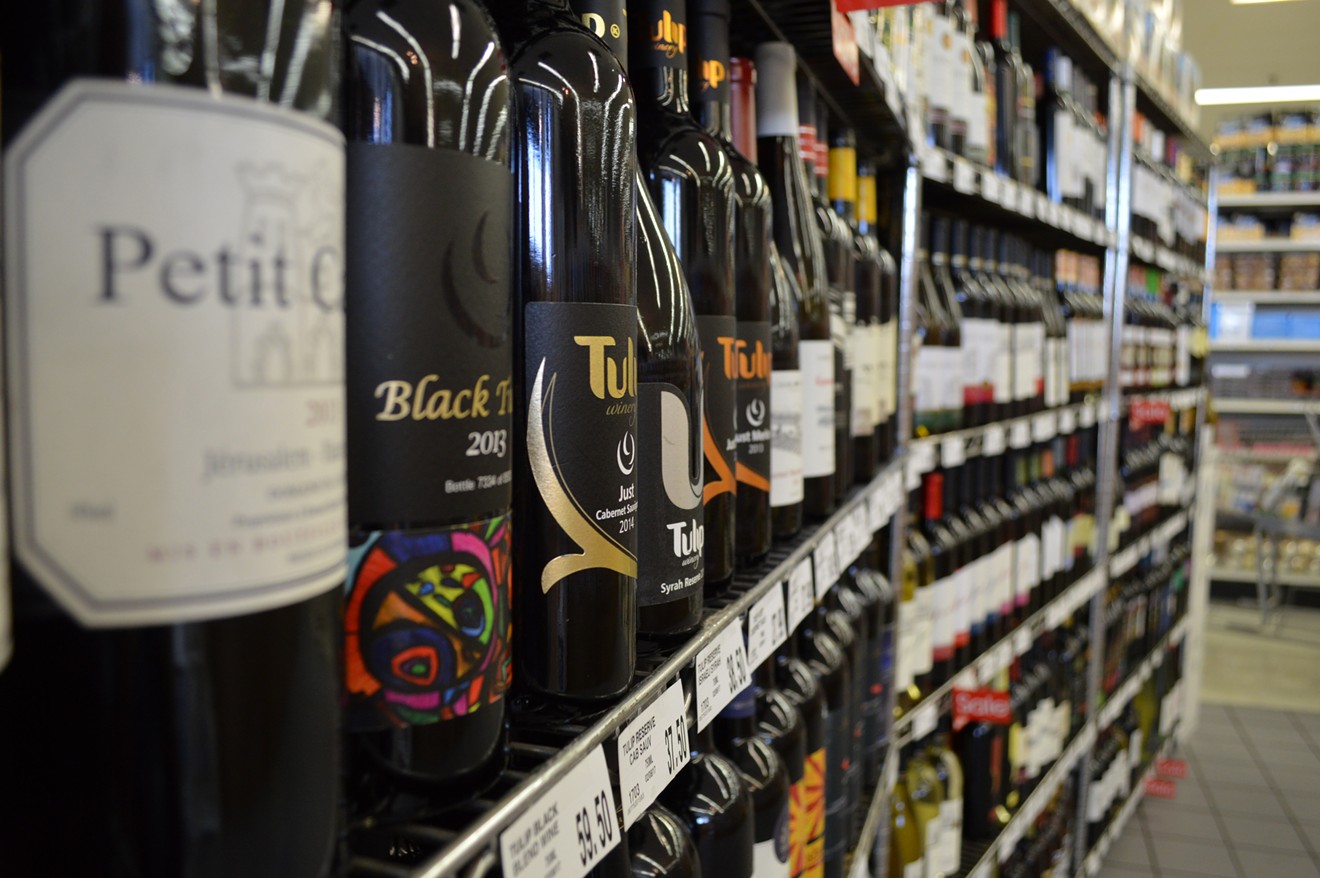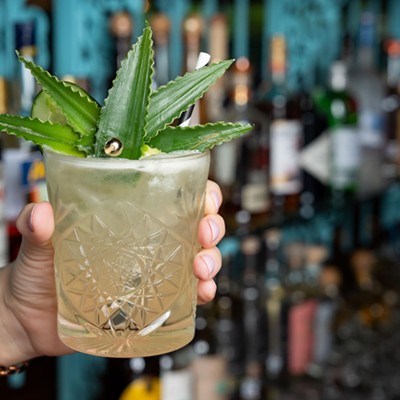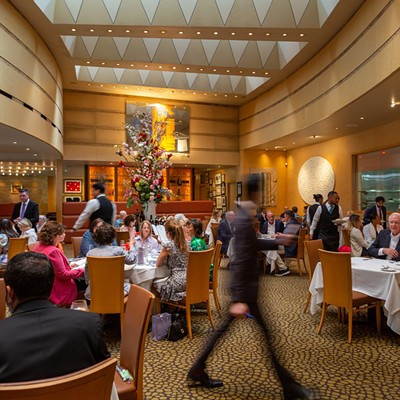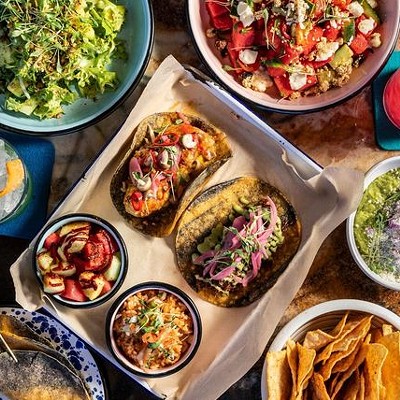Blessed are You, Our God, Ruler of the world, Creator of the fruit of the vine.
It's the one blessing that nearly every American Jew knows or is at least familiar with: The blessing over the wine.
Wine and the blessing over the wine are central to Jewish ritual and tradition across the world.
You can't welcome the Sabbath without a taste of wine and blessing over the wine. You can't get married without a taste of wine and blessing over the wine. You can't even perform a bris (the circumcision ritual, one of the most important covenants in Judaism) without a taste of wine and blessing over the wine.
Next week, for their Passover Seder, the ceremonial meal that retells the story of the Jews' Exodus from ancient Egypt, Jews across Houston and America will raise a glass four times as part of the culinary narrative. (Click here to listen to the prayer that is recited for the first cup of wine in the Passover Seder.)
The reason for the "four cups of wine" has been the subject of unresolved debate for millennia. But one thing is certain: This week and next, a legion of Houston Jews, including many who don't regularly drink wine, will head to their favorite wine retailer to shop for wines that are "kosher for Passover."
According to the excellent online resource for all things Jewish, Chabad.org, "the Hebrew word kosher means fit. The kosher laws [of the Torah or Five Books of Moses] define the foods [and wines] that are fit for consumption for a Jew."
The ancient laws of the Jewish Bible pertaining to wine were inspired by a need to distinguish between wine fit for sanctification (kiddush in Hebrew) and wines intended for idolatrous worship.
According to Chabad: "The production and handling of kosher wine must be done exclusively by Jews." Because the grape-growing and vinification of the fruit have been overseen by Jews, the end user is guaranteed that the wine is indeed fit for consumption and use in Jewish ritual.
In the case of the Passover, however, an extra level of monitoring is required: In order for wines to be kosher for Passover, the wines mustn't come into contact with yeasts associated with grains (this is not the case for kosher wines consumed at other times of year).
One of the central components of the Passover Seder is the unleavened bread known as matzah (or matzoh). It symbolizes the Jews' haste in their escape from Egypt: Because they didn't have time to allow their bread to rise, they ate unleavened bread on their journey through the desert. Leading up to and during the Passover, observant Jews remove any leavened products and yeast from their homes and they avoid eating leavened foods. (This is one of the reasons that businesses like the New York Bagel Shop in Westbury close for a brief time during the Passover holiday.)
Because of this heightened standard for fitness during the Passover, many Houston Jews, together with their sisters and brothers across the world, will feel compelled to buy kosher-for-Passover wines. And while there are some great selections of kosher-for-Passover wines at places like Kroger and H-E-B, there is no offering that rivals the wine department at Belden's in Braeswood Square in Westbury.
As wine appreciation has grown in America over the past two decades, more kosher and kosher-for-Passover wines have become available to U.S. consumers than ever before. Many of them are good and most are reasonably priced. Nearly all of them tend to be "Californian" in style, in other words, concentrated and oaky, with the big and bold fruit flavors that have defined the tastes of a generation of wine lovers in our country. And that's fine, if that's your kind of thing. But if you're into more nuanced and acidity-driven wines, there's really not a lot out there in the Houston market.
Then, of course, there are Manischewitz and Kedem products, "wines" made from grapes or berries and then sweetened by the addition of cane or beet sugar — a lot of sugar. These are really more akin to wine coolers than to wine in the conventional sense of the term. In some cases, these wines contain "not less than 51 percent grapes."
If only about half of the contents of the bottle is grapes, what's in the other half?
Sadly, there aren't a lot of aggressively priced, wholesome options for kosher wines. And while many Houston Jews will be bringing home organic matzah for their Seder this year, some will be serving it alongside wine made from commercially farmed fruit that has been doctored with enzymes, additives and sweetener.
One of the most beloved rituals of the Passover Seder is the "Four Questions," when a child present at the meal is called upon to ask seemingly ingenuous questions about the nature of the holiday. One of those is: "On all nights we eat chametz [leavened food] or matzah [unleavened bread], and on this night only matzah?"
Maybe this year, some will add a fifth question: On all nights we drink organically farmed, spontaneously fermented, additive- and enzyme-free wines made from grapes harvested under a full moon in a vineyard along the Slovenian-Italian border, and on this night Manischewitz?
The answer might lie in how cherished childhood memories evoked by that sugary wine often eclipse wholesome common sense. And amen…so be it.
Chag sameach, everyone! Have a great Passover!
Support Us
Houston's independent source of
local news and culture
account
- Welcome,
Insider - Login
- My Account
- My Newsletters
- Contribute
- Contact Us
- Sign out

There's no kosher-for-Passover wine selection that rivals the wine department at Belden's in Westbury.
Photo by Jeremy Parzen.
[
{
"name": "Related Stories / Support Us Combo",
"component": "11591218",
"insertPoint": "4",
"requiredCountToDisplay": "4"
},{
"name": "Air - Billboard - Inline Content",
"component": "11591214",
"insertPoint": "2/3",
"requiredCountToDisplay": "7"
},{
"name": "R1 - Beta - Mobile Only",
"component": "12287027",
"insertPoint": "8",
"requiredCountToDisplay": "8"
},{
"name": "Air - MediumRectangle - Inline Content - Mobile Display Size 2",
"component": "11591215",
"insertPoint": "12",
"requiredCountToDisplay": "12"
},{
"name": "Air - MediumRectangle - Inline Content - Mobile Display Size 2",
"component": "11591215",
"insertPoint": "4th",
"startingPoint": "16",
"requiredCountToDisplay": "12"
}
,{
"name": "RevContent - In Article",
"component": "12527128",
"insertPoint": "3/5",
"requiredCountToDisplay": "5"
}
]
KEEP THE HOUSTON PRESS FREE...
Since we started the Houston Press, it has been defined as the free, independent voice of Houston, and we'd like to keep it that way. With local media under siege, it's more important than ever for us to rally support behind funding our local journalism. You can help by participating in our "I Support" program, allowing us to keep offering readers access to our incisive coverage of local news, food and culture with no paywalls.
Jeremy Parzen writes about wine and modern civilization for the Houston Press. A wine trade marketing consultant by day, he is also an adjunct professor at the University of Gastronomic Sciences in Piedmont, Italy. He spends his free time writing and recording music with his daughters and wife in Houston.
Contact:
Jeremy Parzen
Trending Food & Drink
- Feeding Houston: Brighter Bites, Houston Food Bank and Cougar Cupboard
- Houston Restaurants and Bars Celebrating 4/20 with Cannabis Cocktails, Munchies and More
- Upcoming Houston Food Events: JŪN Hosts a Pastry Pop-Up and Wine & Dine
-
Sponsored Content From: [%sponsoredBy%]
[%title%]

Don't Miss Out
SIGN UP for the latest
food & drink
news, free stuff and more!
Become a member to support the independent voice of Houston
and help keep the future of the Houston Press FREE
Use of this website constitutes acceptance of our
terms of use,
our cookies policy, and our
privacy policy
The Houston Press may earn a portion of sales from products & services purchased through links on our site from our
affiliate partners.
©2024
Houston Press, LP. All rights reserved.






